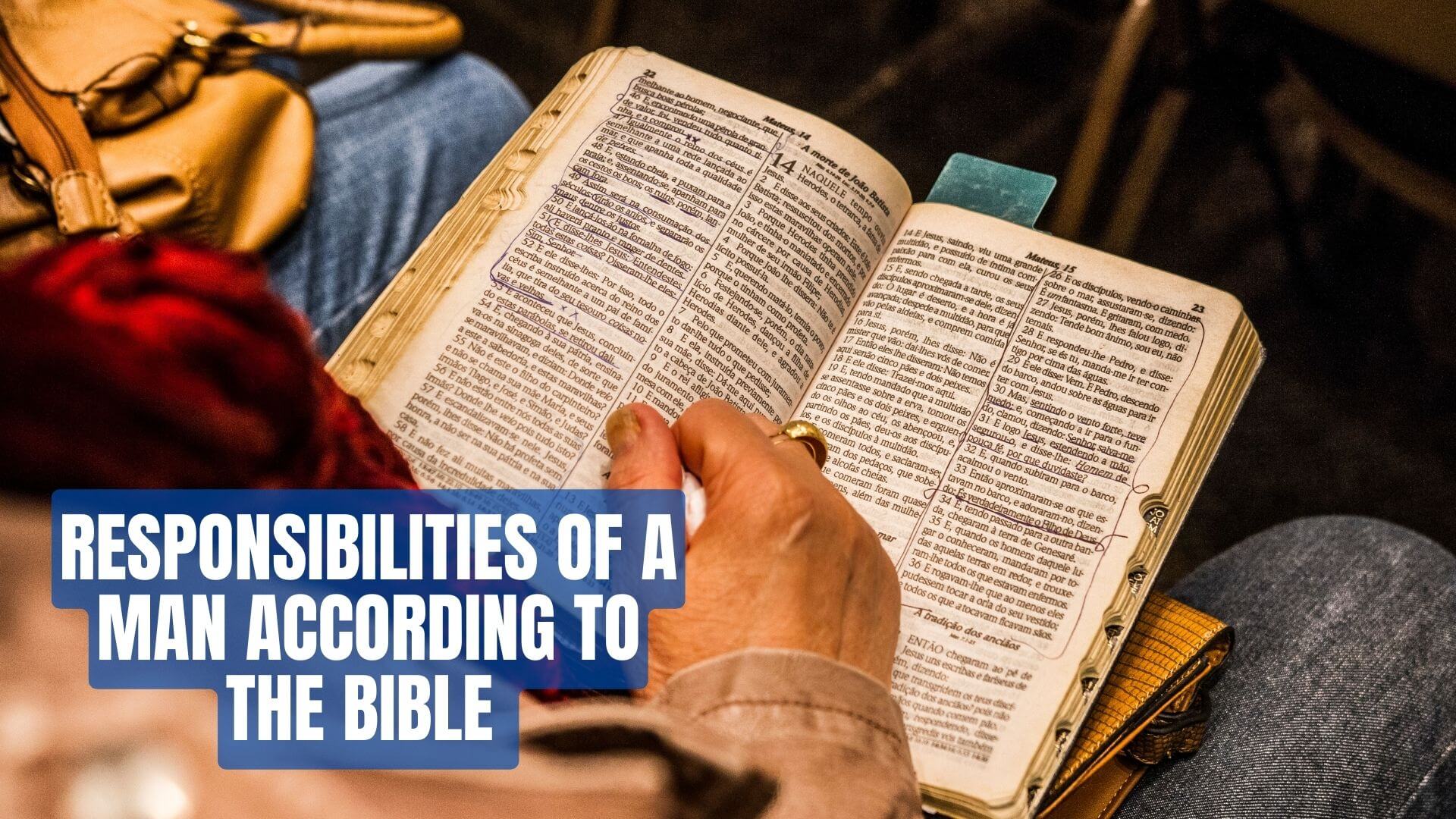It can be challenging to maintain gratitude for what matters most: your family when faced with all life throws at you (job stress, figuring out Zoom, getting the kids to complete their homework, dealing with family sickness, getting supper on the table, etc.).
The Bible can help you remember how crucial it is to preserve those strong family ties and unity, especially when relationships are stressed or everything is going great.
Scripture about Family Togetherness
What does the Bible have to say about family togetherness? God the Father and our Lord Jesus Christ want nothing more than for us to live in harmony with our families.
While on the earth, Christ Jesus preached and prayed, “Let them be one even as we are,” to instruct the church and the individual to live in harmony.
This article will discuss the scripture about family togetherness in both the old and new testaments of the Bible. Find out more.
1 Timothy 5:8 – Family provision is essential
But if any provide not for his own, and specially for those of his own house, he hath denied the faith, and is worse than an infidel.
1 Timothy 5:8 (KJV)
Those who can provide for their family in every manner are required to do so.
Christ asks believers to love one another (John 15:12), and those who love Christ must obey His commands (John 14:15).
People cannot claim to be devoted to Christ if they refuse to provide for their families. It’s awful enough to be chilly and distant from one’s relatives.
Exodus 20:12 – Respect your parents
Honor thy father and thy mother: that thy days may be long upon the land which the Lord thy God giveth thee.
Exodus 20:12 (KJV)
Our responsibility to our parents and family, which is at the core of all our interpersonal relationships and the first of which we naturally become cognizant, is the first and most important of all our duties to other people.
From the position in which they stand to their children and our lives in general, parents and families need to be treated with honor, reverence, and obedience.
1 John 4:20 – Love your brother
If a man say, I love God, and hateth his brother, he is a liar: for he that loveth not his brother whom he hath seen, how can he love God whom he hath not seen?
1 John 4:20 (KJV)
One of the main commandments of Christ is to love one’s neighbor, especially fellow Christians and our entire family. Therefore, showing hatred for others while claiming to know God is a lie.
Loving someone you cannot see is more complex than loving someone you can see. A person cannot reasonably claim to love people they cannot know if they cannot love those they can see.
This is related to the belief that love is designed to be how God is viewed and how humanity “sees” Him since we cannot see God in all His divine essences.
Ephesians 4:3 – Be bonded in peace
Endeavoring to keep the unity of the Spirit in the bond of peace.
Ephesians 4:3 (KJV)
According to Ephesians 2:5, 21, and 22, family members should be “together” because a body is a composite of its members.
This collaboration should occur “in the bond of peace.” Togetherness is only possible with peace, and it is impossible without it.
The warning’s cadence makes it much more crucial that we use every effort to make it possible.
Proverbs 11:29 – Dont be a nuisance in your family
He that troubleth his own house shall inherit the wind: and the fool shall be servant to the wise of heart.
Proverbs 11:29 (KJV)
This verse illustrates how greed and evil cause destruction, especially in familial ties. Here, one’s relationship with family is under pressure.
In this context, “trouble” could indicate being disagreeable or rude. The situation involves someone who not only offends their family but also brings risks or adverse effects into the house.
To “inherit the wind” suggests that there won’t be anything left of the family to carry on; everything will be eaten. All is the result of a family not being together.
Psalm 133:1 – Dwell in Unity
Behold, how good and how pleasant it is for brethren to dwell together in unity!
Psalm 133:1 (KJV)
The blessing Israel had when they united together is reflected in this verse. Before David was crowned king, every man of the tribe sought out their interest. They eventually merged into a single kingdom (1 Chronicle 12:38–40).
When Christians abide by Christ’s mandate to love one another in togetherness (John 13:34–35), they experience the same joy (John 17:21).
Christians should be kind to one another, share a bond with Christ, and work together to give the world a resounding witness.
Ephesians 5:25 – Husbands should love their wives
Husbands, love your wives, even as Christ also loved the church, and gave himself for it;
Ephesians 5:25 (KJV)
A godly husband’s first and primary responsibility is to love his wife, with a focus on showing that love indeed.
A husband should have a high standard of love for his wife, following Christ’s example for believers. It entails a profound, lifelong dedication and the readiness to make any sacrifices required on her behalf.
A husband must adore his wife, commit to staying by her side, and be prepared to die for her if necessary. The same principle applies to maintaining harmony within the family as a whole.
Ephesians 6:1-4 – Obey your parents
Children, obey your parents in the Lord: for this is right. Honour thy father and mother; which is the first commandment with promise; That it may be well with thee, and thou mayest live long on the earth. And, ye fathers, provoke not your children to wrath: but bring them up in the nurture and admonition of the Lord.
Ephesians 6:1-4 (KJV)
This is not a dumb or blind act of collaboration (Acts 5:39). Instead, it is a submission based on a love for God.
The Bible frequently contains explicit moral guidance from God. One of these unchangeable requirements is for children to obey their parents.
Obedience and discipline must be implemented for the family to function together.
Colossians 3:13 – Forgive one another
Forbearing one another, and forgiving one another, if any man have a quarrel against any: even as Christ forgave you, so also do ye.
Colossians 3:13 (KJV)
Believers should treat one another with respect and kindness since they are family. This encompasses both tolerance and forgiveness.
We need to be willing to put up with the eccentricities and peculiarities of other believers rather than expecting perfection from them. And when they mess up, we need to be ready to overlook it and aid in their recovery.
Because those who trust in Christ for salvation have forgiven their sins, we should be inclined to forgive others (Matthew 6:14–15; Ephesians 4:32) just as Christ has forgiven us.
Colossians 3:14 – Be charitable
And above all these things put on charity, which is the bond of perfectness.
Colossians 3:14 (KJV)
Paul believed that love reconciles people’s differences and brings them together. “Harmony” is the harmonious blending of things that are not precisely the same.
This does not imply that believers are faultless or sinless. Instead, love is the song that believers must all play to work together harmoniously, just as an orchestra or band must play together to generate an excellent sound.
Proverbs 22:6
Train up a child in the way he should go: and when he is old, he will not depart from it.
Proverbs 22:6 (KJV)
Despite the guidance provided by godly parents, a child may nevertheless decide to follow the path of dishonesty. But when the child comes to their senses, a foundation of divinity gives them something reassuring to “fall back on” (Luke 15:16–20).
Godly parents can only do their best to guide their children’s actions. They can be confident that teaching their children about God and showing them what a relationship with Him looks like will most likely convince them to trust in the Lord and obey Him.
If not, those encounters will eventually persuade and soften a heart that is resistant to change.
Ephesians 4:13
Till we all come in the unity of the faith, and of the knowledge of the Son of God, unto a perfect man, unto the measure of the stature of the fulness of Christ:
Ephesians 4:13 (KJV)
To strengthen the community of believers, believers should be equipped to serve (Ephesians 4:12). Why?
They must live in harmony. The foundation of this togetherness is our faith’s core principles. In “knowledge of the Son of God,” they are to advance.
They must mature spiritually, displaying more of the fruit of the Spirit (Galatians 5:22–23) and our love for God and people (Matthew 22:37–40).
Isaiah 14:1
For the Lord will have mercy on Jacob, and will yet choose Israel, and set them in their own land: and the strangers shall be joined with them, and they shall cleave to the house of Jacob.
Isaiah 14:1 (KJV)
This verse concerns Israel’s restoration and the influx of converts from other nations who would freely join them after witnessing the favor that both God and man had shown them.
It highlights the importance of unity in our families and society.
Isaiah 66:13
As one whom his mother comforteth, so will I comfort you; and ye shall be comforted in Jerusalem.
Isaiah 66:13 (KJV)
The love that Zion extends and the love that her children receive from the nations are but shadows of Jehovah’s many acts of affection.
In this case, the grown man who has spent many years away from home is the recipient of the mother’s comforting affection rather than the infant at the breast.
God is always willing for his children to live in harmony.
Genesis 2:24
Therefore shall a man leave his father and his mother, and shall cleave unto his wife: and they shall be one flesh.
Genesis 2:249 (KJV)
Being alone is inadequate for humanity, which is why families must coexist. God recognized this need and sent Adam a woman to serve as his helper, partner, and wife.
But the Bible clarifies that a man’s responsibility is to leave his parents by giving his loyalty to his wife instead.
He must put her before his parents, provide for her, live with her, and take care of her. The two will eventually merge into one flesh.
Psalm 127:3-5
Lo, children are an heritage of the Lord: and the fruit of the womb is his reward. As arrows are in the hand of a mighty man; so are children of the youth. Happy is the man that hath his quiver full of them: they shall not be ashamed, but they shall speak with the enemies in the gate.
Psalm 127:3-5 (KJV)
to maintain the unity of the family, God undoubtedly anticipates that parents will raise their children in righteousness.
God has given us children as a precious gift. Hence, Children suffer, and parents commit a great injustice when they allow their children complete freedom to do anything they want.
Parents should educate their children to be submissive to others than let them grow up and experience a harsh reality.
John 17:23
I in them, and thou in me, that they may be made perfect in one; and that the world may know that thou hast sent me, and hast loved them, as thou hast loved me.
John 17:23 (KJV)
It is better to think of these words as a parenthesis that more clearly expresses the idea of the oneness between the Father, the Son, and the believer.
The last verse’s theme—”That they may be one even as we are one: I in them, and Thou in Me, that they may be made perfect in one”—is carried through here.
Jesus encourages every believer to be one because he and the Father are one. The central premise of Christianity is unity. Perfection is made possible as a result of oneness in God.
Mark 3:25
And if a house be divided against itself, that house cannot stand.
Mark 3:25 (KJV)
Everyone who follows God is a member of his family. One Lord, one faith, one baptism, one God and Father of all, who is over all, through all, and in all make up the church, which is based on Trinity’s oneness (Ephesians 4:4–6).
Although Jesus intended the church to be unified, there are innumerable examples of churches today whose members have profound disagreements that have led to the local church’s extinction.
We must never forget that, in the end, we are all part of God’s only church, founded on the unity of the Trinity and the shared belief of all its members.
Colossians 3:21
Fathers, provoke not your children to anger, lest they be discouraged.
Colossians 3:21 (KJV)
Fathers shouldn’t incite rage in their children. The purpose is to agitate or otherwise create issues for your child. It is best to refrain from being unfair and aggressive in particular.
Fathers should be role models and providers rather than problem-makers for their sons and daughters to live harmoniously.
Children who their fathers provoke may get discouraged. Children look to their fathers for motivation. When fathers fall short in this regard, it may have a lasting effect on their child’s well-being.
Romans 12:10
Be kindly affectioned one to another with brotherly love; in honour preferring one another;
Romans 12:10 (KJV)
Love can be compared to being devoted to a family. We must have a brotherly love for one another. Faithful brothers and sisters are those who belong to Christ.
God accepts us into His family by adopting us as His offspring. All those who see God as their Father are a part of that family. Of course, siblings don’t always get along with each other.
However, they have a loyalty and sense of belonging greater than most friendships in most families. Every member of the body of Christ would constantly feel highly valued by others and would never be content that we are honoring one another sufficiently if each of us took this to heart.
Proverbs 17:17
A friend loveth at all times, and a brother is born for adversity.
Proverbs 17:17 (KJV)
The value of a true friend and a brother is highlighted in this verse. A brother is supportive during difficult times, and a true friend is always loving.
In favorable and stormy conditions, a true friend and a true brother demonstrate true love. It is about genuine affection that connects to doing things.
When someone suffers from illness, pain, financial hardship, or the loss of a loved one, a loyal friend or brother comes alongside that person and offers support.
Conclusion
Generally, similar individuals must be joined by God’s mandate. And that in itself makes life simple. God created us as a family so we might receive the love and care we require.
Consider for a moment what would happen if we suddenly came into this world without anyone to care for us. It would be impossible to live if that came to pass. It is that easy; the value of family love cannot be overstated.
As a result, we need to understand our responsibilities as husbands, wives, kids, and uncles. We may bond and create an unshakable affection for one another in this way.

















